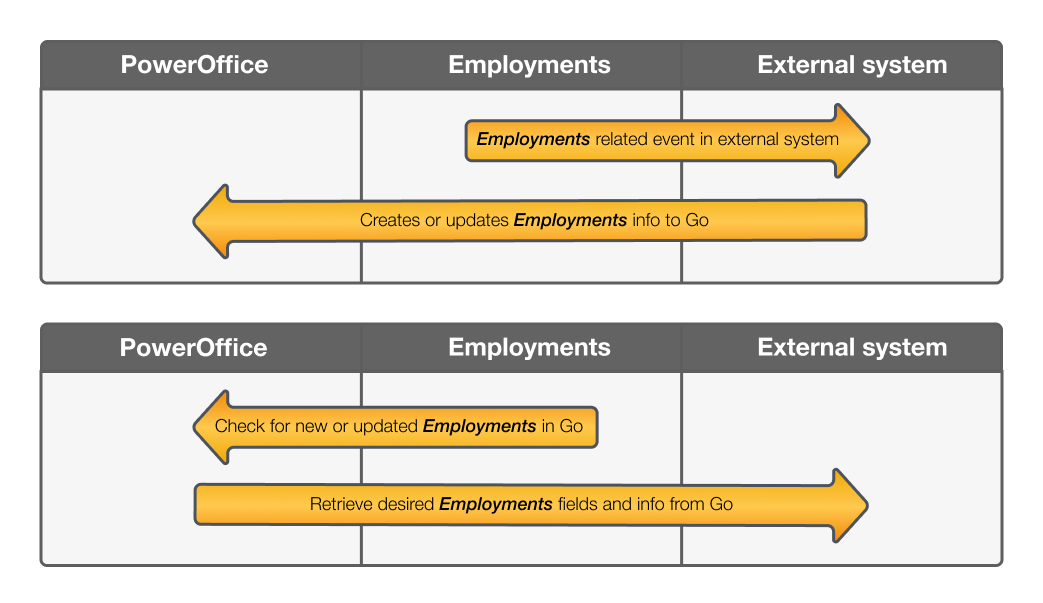Employments
Workflows > Endpoints > Contacts > Employments
Purpose: Retrieve or update employement details.
This workflow is typically used in cases involving a payroll or HR related workflow. The endpoints can also be used for general sync/reporting purposes. A HR backend system will typically have interest in using these endpoints.
All employment endpoints have their own set of access privilege requirements. You should only request access to and use the endpoints relevant to your use case and the data needed. Employment information may be subject of sensitive data in terms of GET operations, and creating or updating inadequate employment data to Go may have consequences for subsequent payroll reporting (a-melding).
For these reasons, it is important that you contact and discuss your intended workflow with the api team, as the team need to set the correct privileges for your integration.
Regardless of the direction of the data flow, we highly recommend that the integrating party store the Id's of the PowerOffice objects. In general, the id's of all the various PowerOffice entities are the preferred mapping key, as they are uniquely assigned by the system and cannot be changed.

Description of core flow
Synchronize to Go:
Check whether the relevant employement data already exists in Go
Create or update information
Synchronize from Go
Check if there are any new or newly updated employments in Go
Retrieve the desired fields and information
Prerequisites
Access to the Employee access privelige
Access to the emplyment access privelige(s) relevant for the endpoint(s) your workflow need to use
The client need at least one active subscription of a PowerOffice Go module
Related workflows
Payroll workflows (pay items and salary lines)
Transferring timetracking entries to Go
Reporting timetransactions from Go
Dictionary/Terminology
Employment: An employee will have a registered employment with data relevant for payroll and payroll reporting (a-melding). The employment contains information of the nature and type of the emplyment, salary, fixed salary lines for payrolls, leave, layoff etc. Although unusual, an employee may have more than one active employment with the employer.